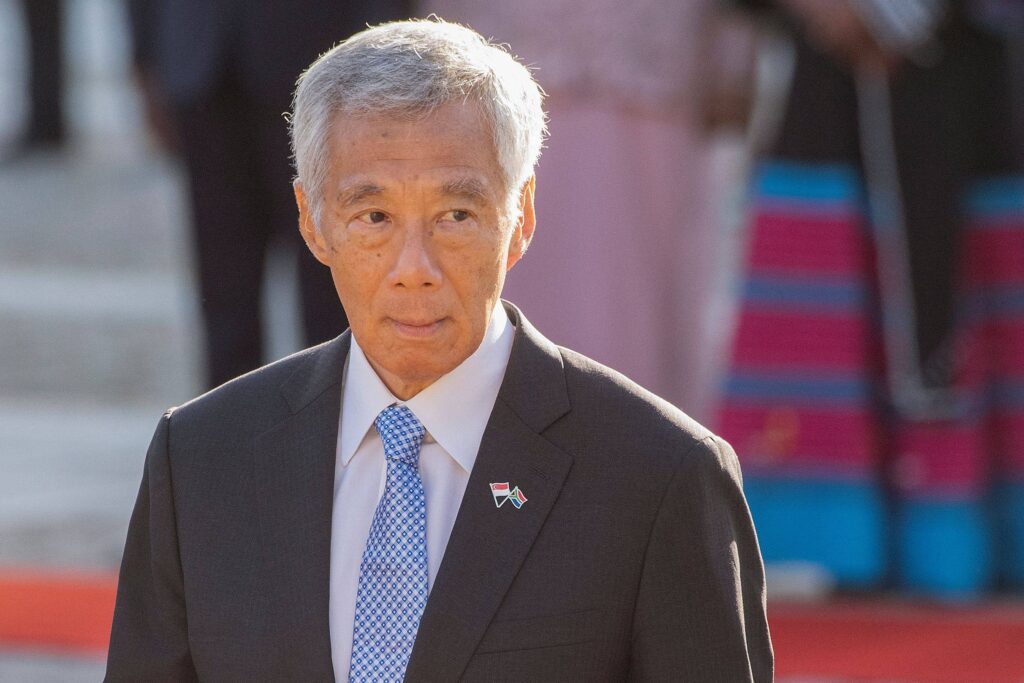Bitcoin has surged above the $45,000 mark for the first time in almost two years, driven by market anticipation of a forthcoming approval for a spot Bitcoin exchange-traded fund (ETF).
The digital currency has experienced a rapid ascent from $42,000 at the beginning of the year, with a remarkable 6% increase in the last 24 hours and an impressive 170% gain over the past year, according to CoinMarketCap data.
This milestone places Bitcoin at a price level exceeding any seen in 2023, signifying a notable start to 2024.
The surge in Bitcoin’s price coincides with the cryptocurrency community’s hopeful outlook for the potential approval of one or more of the 14 pending applications for a spot Bitcoin ETF product, currently awaiting a decision from the Securities and Exchange Commission (SEC).
The last time Bitcoin surpassed the $45,000 mark was nearly 20 months ago on April 5, 2022, before it entered a prolonged bear market, eventually reaching a low of $15,600, as indicated by TradingView data.
Market experts hold differing opinions on how an ETF approval would impact Bitcoin’s short-term price.
Analysts at crypto options trading platform Greeks.live anticipate that Bitcoin might not witness a significant immediate rally, citing diminishing implied volatility in Bitcoin options.
READ MORE: VanEck Launches Pro-Crypto Ad Campaign Amid Pending Bitcoin ETF Application
Conversely, traders such as Scott Melkor, with a substantial following of 925,000, believe that Bitcoin is currently forming a “bull pennant” after a month of consolidation around the $40,000 range.
Melkor envisions the possibility of Bitcoin surging to as high as $54,000 in the days following the SEC’s potential approval.
Meanwhile, Gabor Gurbacs, an advisor at VanEck, predicts that the initial days of a spot Bitcoin ETF may be considered somewhat of a “letdown” by broader market standards.
Nevertheless, he anticipates that these products will eventually attract trillions of dollars in inflows over the next few years, emphasizing their long-term significance.
In conclusion, Bitcoin’s remarkable price increase to over $45,000 marks a significant milestone, driven by optimism surrounding the pending spot Bitcoin ETF approvals.
As the cryptocurrency market awaits the SEC’s decision, the community remains divided on the short-term and long-term implications of this potential development.
Greeks.live, a cryptocurrency options trading platform, has cast doubt on the possibility of a significant price surge following the approval of a spot Bitcoin exchange-traded fund (ETF) by the U.S. regulator, the SEC.
The platform has analyzed data from its trading platform, revealing that despite widespread speculation about the SEC granting approval for the Bitcoin Spot ETF application in the near future, there has been minimal volatility in major term implied volatilities (IVs) and prices.
Term IV is a metric that measures the market’s expectations regarding future price movements in options contracts.
While the crypto market eagerly awaits the SEC’s decision, Greeks.live’s tweet pointed out the unexpectedly subdued market activity in response to the news.
Their options data showed that the implied volatility for Jan12 options, closely linked to the ETF, has actually decreased rather than rising.
Furthermore, the trading volume for these options accounted for only 2% of the day’s total turnover.
From these observations, Greeks.live has concluded that the market may have already factored in the potential approval of the spot Bitcoin ETF.
READ MORE: Avalanche Foundation Allocates $100 Million NFT Incubator Fund to Purchase Memecoins
Essentially, market participants might have anticipated this event and adjusted their positions accordingly, resulting in the actual approval having a limited impact on prices and volatility.
Several prominent asset managers, including BlackRock, Valkyrie, and Van Eck, submitted amended S-1 forms to the United States Securities and Exchange Commission on December 29, which was the final day for the SEC to consider such applications in January 2024.
Invesco Galaxy, Bitwise, WisdomTree, and Fidelity have also submitted their Form S-1 applications subsequently.
BlackRock’s updated filing has named Jane Street and JPMorgan Securities as “authorized participants” in their proposed spot Bitcoin ETF application.
BlackRock has already specified that it will utilize a cash-only model for the ETF.
Interestingly, BlackRock was the first entity to settle a trade on JPMorgan’s Tokenized Collateral Network service on October 11, highlighting the increasing collaboration and integration within the cryptocurrency ecosystem.
Artificial intelligence (AI) may play a pivotal role in the possible scenario where Bitcoin’s price surges to $100,000 in 2024, as suggested by GPT-4, the latest iteration of the AI chatbot ChatGPT.
Inquiries directed at ChatGPT on January 1, as reported by Cointelegraph, sought insights into the feasibility of Bitcoin reaching this milestone and the potential contributions of AI to this outcome.
ChatGPT cautiously deemed it “theoretically possible” for Bitcoin to achieve $100,000 in 2024, contingent on several favorable factors aligning.
Nonetheless, it emphasized that this remains within the realm of high speculation.
The AI chatbot went on to enumerate a series of general factors that could propel such a surge.
These factors encompassed positive regulatory developments, an upswing in retail and institutional adoption, as well as currency devaluation or inflation.
ChatGPT underscored the significance of a potential approval of a spot Bitcoin exchange-traded fund (ETF) in influencing the price.
It contended that the greenlighting of a spot BTC ETF could significantly bolster accessibility and liquidity for the asset, potentially luring institutional investors into the market, interpreting it as a sign of regulatory acceptance.
READ MORE: Indonesian Authorities Shut Down Ten Bitcoin Mining Operations Over Electricity Theft Allegations
Subsequently, Cointelegraph inquired about the role AI might play in propelling Bitcoin to $100,000 in 2024.
ChatGPT elucidated that AI could indeed be a catalyst in this hypothetical scenario.
AI’s contributions would be seen through its influence on market analysis, trading strategies, and broader technological innovations in blockchain technology.
The AI chatbot elaborated on the capabilities of AI algorithms, which are adept at processing extensive market data, discerning trends and patterns that might elude human analysts.
Furthermore, it underscored the potential of AI-driven trading bots to execute trades precisely at optimal moments, contingent on market conditions.
ChatGPT stressed that these bots could outpace human reactions in a fast-paced market environment.
Nonetheless, the implementation of AI in trading came with inherent risks, according to ChatGPT.
It highlighted the vulnerability to hacking and cyberattacks, citing a 2022 incident where a trading bot netted $1 million through an arbitrage trading opportunity.
Unfortunately, a hacker manipulated the bot into authorizing a malicious transaction, resulting in a complete drain of the funds.
In conclusion, while ChatGPT acknowledges the potential role of AI in Bitcoin’s ascent to $100,000 in 2024, it cautions against underestimating the risks associated with deploying AI in the cryptocurrency market.
Hackers have managed to exploit Orbit Bridge, the cross-chain bridging service of the Orbit Chain protocol, just hours before the new year, making off with a staggering $82 million.
This shocking breach was brought to light on December 31st by a pseudonymous Twitter user known as Kgjr, who raised the alarm regarding significant outflows from the Orbit Chain Bridge protocol.
Subsequently, blockchain investigators Officer CIA and cybersecurity firm Cyvers corroborated these findings.
Based on data from the blockchain analytics platform Arkham Intelligence, the hackers successfully siphoned off a grand total of $81.68 million.

This sum was divided among five separate transactions, involving $30 million in Tether, $10 million in USD Coin, $21.7 million in Ether, $9.8 million in Wrapped Bitcoin (WBTC), and $10 million worth of the algorithmic stablecoin DAI, all of which were swiftly moved to new wallets.
The Orbit Chain protocol is closely intertwined with the Klaytn network (KLAY), a modular layer-1 blockchain.
READ MORE: Bitcoin ETF Race Heats Up as Top Contenders Submit Final Applications
Notably, Klaytn’s block explorer indicates that eight of the highest-valued assets on the Klaytn network are actually wrapped assets that rely on the Orbit Bridge for cross-chain transfers.
Despite the gravity of the situation, the exact nature of the exploit remains shrouded in mystery. Attempts to solicit comments from Orbit Chain and Klaytn regarding this incident yielded no immediate response, leaving the crypto community in suspense.
Orbit Chain, which was launched in South Korea in 2018, is a versatile multi-asset blockchain primarily designed for facilitating cross-chain transfers across various decentralized networks.
Its typical use case involves the seamless transfer of assets between EVM-compatible networks and the Klaytn network.
It is crucial to distinguish Orbit Chain from another cross-chain bridging protocol called Orbiter Finance, which shares a somewhat similar name but operates independently.
As the crypto space grapples with the fallout from this high-profile breach, security measures and risk assessments across the ecosystem are expected to be scrutinized and enhanced.
The United States Department of Justice’s recent decision to forgo a second trial against Sam Bankman-Fried has ignited controversy within the crypto community.
In a letter filed on December 29th, prosecutors argued that the case’s significant public interest necessitated a “swift resolution.”
This choice implies that Bankman-Fried will not be subjected to further charges related to his alleged involvement in unlawful campaign contributions.
The document states, “Much of the evidence that would have been presented in a second trial was already presented in the first trial and can be considered by the Court at the defendant’s March 2024 sentencing.”
This decision has been met with widespread criticism among crypto enthusiasts. Paul Grewal, Coinbase’s chief legal officer, branded it a “miscarriage of justice,” emphasizing the importance of a public airing of charges, especially those involving campaign finance.
He stressed that questions about what politicians knew and when they knew it are crucial and must be answered.
Simon Dixon, co-founder of BnkToTheFuture.com, an online investment platform, pointed out that the decision also shields U.S. politicians from further scrutiny concerning campaign contributions and clawbacks during the upcoming 2024 election season.
READ MORE: US Prosecutors Hint at No Second Trial for Ex-FTX CEO Sam Bankman-Fried
Bankman-Fried himself admitted to being a “significant donor” to both sides of the political spectrum leading up to the 2022 midterm elections. Court documents revealed that he contributed over $100 million to politicians.
During his trial in October, he explained that these donations made in his name were funded by loans from Alameda Research, FTX’s sister company.
The aim was to influence U.S. government policies on cryptocurrency regulation. Before FTX’s collapse in November 2022, Bankman-Fried had plans to donate $1 billion for political causes by 2024.
In addition to the campaign contribution allegations, Bankman-Fried has also been cleared of charges related to a conspiracy to bribe Chinese officials.
Prosecutors argue that a second trial would not impact the U.S. Sentencing Guidelines range for him.
It’s worth noting that Bankman-Fried had previously been found guilty of all seven fraud charges by a jury during his criminal trial.
These charges included wire fraud, wire fraud conspiracy, securities fraud, commodities fraud conspiracy, and money laundering conspiracy.
His sentencing is scheduled for March 28, 2024, and he could potentially face a maximum sentence of 115 years in prison.
Former Donald Trump attorney, Michael Cohen, has publicly acknowledged a significant error in his legal research process, attributing it to the use of Google Bard, an artificial intelligence (AI) chatbot.
Cohen, who is preparing to testify against Trump in upcoming trials, admitted to unintentionally forwarding inaccurate legal citations generated by Google Bard to his lawyer, David Schwartz, in support of his case.
Cohen’s confession came to light in a recent court filing, where he clarified his misunderstanding of Google Bard’s capabilities.
He had mistakenly assumed it to be a highly advanced search engine rather than a generative AI service similar to Chat-GPT.
The problematic citations, as well as several others that were not included in the motion, were attributed to this misunderstanding.
Critics argue that Cohen, not being an active legal practitioner, bore no ethical obligation to verify the accuracy of the information he provided.
They contend that Schwartz, as a legal professional, should have reviewed the citations before incorporating them into official court documents.
Cohen’s legal team emphasized this point, stating, “Mr. Cohen is not a practicing attorney and has no concept of the risks of using AI services for legal research.”
READ MORE: Federal Judge Rules in Favor of SEC in Terraform Labs Securities Case
To further highlight the issue, Cohen’s statement outlined the sequence of events: He had sourced citations and case summaries online, believing them to be authentic, which were then added to the motion by Schwartz without proper validation.
This incident is not the first involving attorneys relying on AI tools only to discover inaccuracies.
Earlier this year, a similar case emerged when Steven Schwartz, an attorney at the New York law firm Levidow, Levidow & Oberman, faced criticism for incorporating AI-generated court citations that turned out to be false.
The judge presiding over the case expressed strong dissatisfaction with Schwartz’s reliance on AI for legal research, pointing out that six of the submitted cases contained fabricated judicial decisions, false quotes, and fictitious internal citations.
In both instances, the misuse of AI tools for legal research underscores the importance of thorough verification and the ethical responsibility of attorneys to ensure the accuracy of the information they present in court.
These cases serve as cautionary tales for legal professionals exploring the integration of AI technology in their practice.
In the midst of the mounting excitement surrounding the potential approval of a spot Bitcoin exchange-traded fund (ETF) in January 2024, certain industry analysts have raised concerns, particularly regarding the issue of backing.
Josef Tětek, a Bitcoin analyst at the hardware crypto wallet firm Trezor, voiced his apprehensions in December 2023, suggesting that spot Bitcoin ETFs might steer individuals away from self-custody, possibly leading to the creation of “millions of unbacked Bitcoin.”
He warned of a scenario where these ETFs could result in what is often termed “paper Bitcoin.”
Tětek’s remarks stirred a significant response within the crypto community, with some dismissing his claims as FUD (fear, uncertainty, doubt), while others pondered the means to ensure that ETF issuers truly hold Bitcoin on behalf of their clients.
Some observers even advocated for the publication of “actual on-chain addresses” in addition to reports on the issuers’ BTC holdings.
David Gerard, the author of “Attack of the 50 Foot Blockchain,” countered Tětek’s concerns, asserting that it was “unlikely” for ETF administrators to create unbacked BTC equivalents or misrepresent their assets.
He emphasized the regulatory oversight and credibility of well-established financial entities, dispelling the notion that unbacked ETF shares were a realistic threat.
However, he didn’t delve into whether clients could independently verify BTC holdings by issuers.
Drawing a comparison to gold ETFs, Bloomberg ETF analyst Eric Balchunas contended that spot Bitcoin ETFs would closely resemble them.
READ MORE: US Prosecutors Hint at No Second Trial for Ex-FTX CEO Sam Bankman-Fried
He pointed out that gold ETFs, having been in existence for two decades, diligently disclose the quantity of gold held by the custodian.
Balchunas emphasized the meticulousness of asset managers, stating they neither desired legal trouble nor wanted the negative publicity that would accompany any failure to hold Bitcoin or any shorting of it.
He also noted that companies like BlackRock and Grayscale were exposed to Bitcoin’s volatility.
The key distinction with spot Bitcoin ETFs, as currently conceived, is that investors would receive cash instead of Bitcoin upon redemption.
Balchunas advised individuals seeking direct ownership of Bitcoin to do so through self-custody, which aligns with the original vision of Bitcoin’s anonymous creator, Satoshi Nakamoto.
He underscored that the vast collective assets in mutual funds and ETFs, amounting to approximately $30 trillion, meant that most investors preferred to avoid direct interaction with the underlying assets.
While many industry observers expressed confidence in the integrity of ETF providers in the cash-create model, others remained convinced that there was a fundamental issue.
According to Tětek, the only way to eliminate concerns of “paper Bitcoin” would be if ETF shares were redeemable for actual Bitcoin.
However, given that the proposed ETFs only allowed for cash in and cash out, investors would have to place trust without the ability to independently verify holdings.
On the final day of consideration by the United States Securities and Exchange Commission (SEC) in January 2024, prominent asset management firms BlackRock, Valkyrie, and Van Eck submitted amended S-1 forms.
These revised documents represent the next step in their quest to establish Bitcoin exchange-traded funds (ETFs) and align with the SEC’s preferences.
Van Eck’s updated application emphasizes that “Authorized Participants” (APs), the financial entities permitted to buy or redeem shares with the Trust, will exclusively transact in cash for both share creation and redemption. This approach mirrors the SEC’s preferred method.
In its updated filing, BlackRock identified Jane Street and JPMorgan Securities as its “authorized participants” for the proposed spot Bitcoin ETF.
BlackRock has consistently advocated for a cash-only model.
Furthermore, the asset manager made history by executing the first trade on JPMorgan’s Tokenized Collateral Network service on October 11.
BlackRock originally submitted its application for a spot Bitcoin ETF in June, followed by Valkyrie’s application a week later.
READ MORE: ARK Invest Liquidates $200 Million in GBTC Holdings, Shifts Focus to Bitcoin Futures ETF
Both firms have actively engaged with the SEC throughout December, attending meetings to discuss their proposals.
Commenting on BlackRock’s amendment, Bloomberg ETF analyst Eric Balchunas noted, “Looks [like] we have our first horse at the starting gate,” alluding to the asset manager’s potential for SEC approval.
Balchunas previously anticipated the SEC’s decision on the outstanding spot Bitcoin ETF filings to occur by January 10, 2024.
If approved, trading could commence shortly thereafter.
Valkyrie, in its updated S-1, also designated authorized participants, namely Jane Street Capital and Cantor Fitzgerald. Additionally, StoneX Financial will assume the role of its lead market maker.
It’s worth noting that a slew of financial heavyweights, including BlackRock, Van Eck, Grayscale, Bitwise, WisdomTree, Invesco, Galaxy, Fidelity, ARK Invest, Valkyrie, Franklin, Hashdex, Global X ETFs, and Pando Asset, have all submitted S-1 applications for spot Bitcoin ETFs.
The outcome of these applications will have significant implications for the cryptocurrency market and its integration into traditional financial systems.
Singapore’s Prime Minister, Lee Hsien Loong, has issued a stark warning to his social media followers about the rising threat of deepfake videos leveraging his voice and image to promote fraudulent cryptocurrency schemes.
On December 28, Loong took to his social media platforms, including X (formerly Twitter), LinkedIn, and Facebook, to caution his supporters against falling victim to scammers who employ artificial intelligence (AI) technology to generate deepfakes that falsely attribute promises of “investment returns” and cryptocurrency giveaways to him.
He even shared an example of a deceptive video featuring himself being interviewed, which was manipulated by fraudsters to promote a bogus form of “hands-free crypto trading.”
Loong emphasized the growing danger posed by deepfake technology in spreading misinformation. He stressed the importance of remaining vigilant and educating oneself and loved ones on how to defend against such scams.
Notably, Prime Minister Loong has long been a target for scammers, predating the proliferation of AI-based tools in this arena.
READ MORE: Argentina’s New Government Takes Steps to Legalize Cryptocurrency Holdings
In 2021, he issued a cautionary message to Singaporeans, urging them to exercise caution when dealing with cryptocurrency platforms.
At that time, individuals had created fraudulent profiles on platforms like BitClout, using fake social media accounts to sell tokens, raising concerns about identity theft and fraud.
Furthermore, both Loong and Deputy Prime Minister Lawrence Wong faced inquiries from lawmakers in the wake of the FTX exchange’s collapse in 2022, underscoring the government’s commitment to safeguarding its citizens from cryptocurrency-related risks.
The cryptocurrency landscape has been rife with scams since its inception. Scammers have employed a variety of tactics to dupe users into parting with their fiat currency or digital tokens.
In 2020, high-profile Twitter accounts, including former United States President Barack Obama and President-elect Joe Biden, were compromised by hackers who used them to promote a fraudulent Bitcoin scheme.
These incidents illustrate the ongoing challenge of combating cryptocurrency scams and the importance of public figures like Prime Minister Lee Hsien Loong raising awareness to protect the community from financial fraud in the digital age.
Indonesian authorities have recently taken action against ten Bitcoin mining operations, accusing them of electricity theft amounting to nearly $1 million USD.
The North Sumatra Police Force initiated the crackdown, targeting a multi-site Bitcoin mining operation across various locations in Indonesia.
During the operation, they confiscated 1,134 Bitcoin mining machines, 11 meters of electrical cable, and assorted computer equipment.
The Chief of North Sumatra Police, Irjen Agung Setya Imam Effendi, asserted that the organizers of these mining operations had manipulated electrical circuits to power the extensive number of Bitcoin mining machines.
Effendi demonstrated the tampering, explaining that the electricity was being diverted from the upper part of the PLN box, bypassing the meter, which was improper and illegal.
READ MORE: ARK Invest Liquidates $200 Million in GBTC Holdings, Shifts Focus to Bitcoin Futures ETF
The total loss resulting from these ten cases of electricity theft was estimated to be 14.4 billion Indonesian Rupiahs (IDR), equivalent to approximately $935,666 USD.
This incident follows a high-profile case in China where a government official received a life sentence for facilitating access to electricity for Bitcoin miners.
Yi Xiao, a former vice chairman of the Jiangxi Provincial Political Consultative Conference Party Group, was convicted of abusing power in a Bitcoin mining enterprise.
Xiao had reportedly operated a massive $329 million Bitcoin mining venture under the corporate name Jiumu Group Genesis Technology from 2017 to 2021.
During this period, Xiao, along with other corporate executives, amassed a staggering 160,000 Bitcoin mining machines, which at one point accounted for 10% of the entire electricity consumption of the city of Fuzhou.
His sentence underscores the seriousness with which authorities are addressing illegal Bitcoin mining activities, particularly those involving electricity theft, as these operations can impose significant financial burdens on both governments and utility providers.










